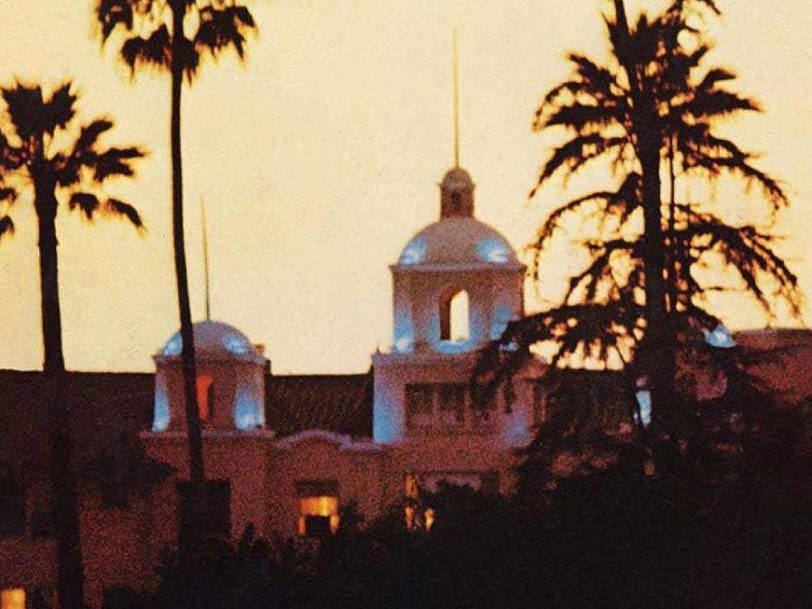“We were Steely Dan fans. They were brave lyrically. We wanted to write a song that was like an episode of The Twilight Zone,” said Frey. “That was cinematic. The song follows different pictures. We decided to create something strange to see if we could do it.”
The lines “They stab it with their steely knives/But they just can’t kill the beast” is a playful reference to Steely Dan, while “You can check out any time you like/But you can never leave” led some fans to speculate that the Los Angeles hotel was actually a metaphor for a psychiatric asylum.
“The dark underbelly of the American Dream”
Henley said that the six-and-a-half-minute song, which features references to mirrors on the ceiling and pink champagne on ice, was “basically a song about the dark underbelly of the American Dream and about excess in America”. It shot to No.1 on the Billboard charts and was quickly certified gold for selling one million copies in under three months.
Though Hotel California’s focal point, the “lovely place”, is not based on any particular hotel, the building photographed by David Alexander which appears on the cover of the album is the Beverly Hills Hotel. Eagles used the image without permission, but the hotel had no desire to take the band to court because the success of the single and album led to a surge in bookings. The image is now one of the most iconic album covers of the 70s.
The Hotel California album is more than just the main hit, of course, and includes the sweet, slower-tempo Victim Of Love and the haunting five-minute ballad Wasted Time, which is one of Eagles’ most mournful songs. Written after Don Henley’s bitter breakup with Loree Rodkin, it features one of his best vocal performances, set against soaring strings. The band also cut an instrumental version of Wasted Time, which opens the second half of the record.
Hotel California has sold more than 32 million copies worldwide in the past half century, and it remains one of the band’s crowning achievements.
Check out our 20 best Eagles songs




